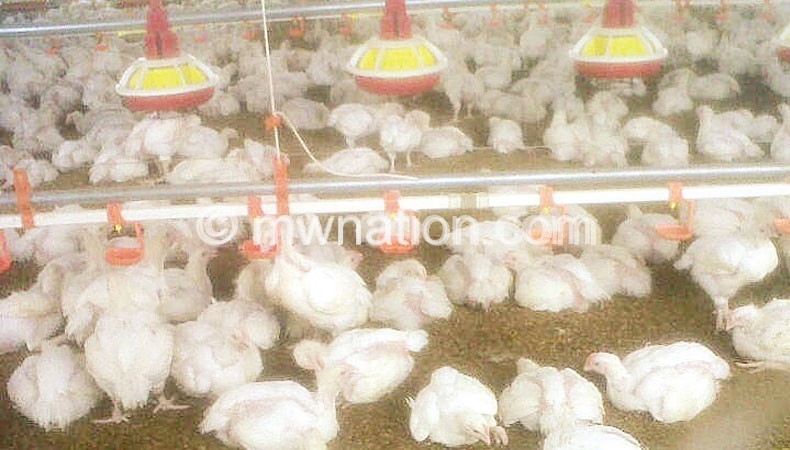Illegal imports choke local poultry industry
The Poultry Industry Association of Malawi (Piam) has decried illegal importation of poultry products which it argues has put the industry under financial strain and has affected about 12.5 percent of jobs.
In a statement, Piam chairperson Alexander Stewart said illegal importation of table eggs, animal feeds and frozen chicken has led to the closure of farms, depletion of flocks and loss of of 3 000 jobs out of 24 000.

He said this has been worsened by higher prices of maize, which is one of the main ingredients of feed for the industry.
Said Stewart: “The industry is extremely concerned with continuous illegal importation of table eggs and poultry feeds from Zambia and the continued importation of frozen chicken from Brazil by leading supermarket chains.
“This illegal importation is contrary to existing restriction orders currently in effect in Malawi.
“The poultry industry supports other local industries, including but not limited to packaging and transport. Our industry lifts a huge burden on foreign exchange and in recent years, began exporting into the region.”
He said the collapse of the poultry industry would affect demand for oil cake, resulting in oil imports. This would also destroy the farmer base that has diversified into oil seeds like soya and sunflower.”
The development comes seven years after the association also asked government to intervene and stop any importation of poultry products, arguing that the system has potential to put local producers out of business.
It also comes at a time Malawi Milk Producers Association has also been seeking government’s intervention on the imported milk products which affect the local industry.
Minister of Finance, Economic Planning and Development Joseph Mwanamvekha earlier said protecting local industries is key since Malawi is signatory to other trade agreement sin the Southern African Development Community and the Common Market for East and Central Africa
However, Ministry of Industry and Trade spokesperson Mayeso Msokera said they plan to review the country’s bilateral, regional and multilateral agreements to ascertain whether they are beneficial or not.
Currently, Malawi is a signatory and beneficiary of several bilateral and multilateral trade agreements.
Since independence in 1964, the country has been signing trade agreements with other countries at bilateral, regional and multilateral levels to provide increased market access to boost exports.
Malawi’s trade partners are mostly exporting more to Malawi than what Malawi exports, a situation which widens the trade gap or the gap between imports and exports.





